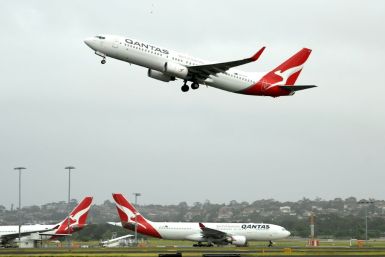PM Tony Abbott Called ‘reckless ideologue who ignores science’; Bureau Report Adds Proof of Climate Change
After the Bureau of Meteorology has announced 2013 as the hottest year in Australia, the spotlight shines on Prime Minister Tony Abbott as critics seized an opportunity to call for a climate policy change.
Political opponents of Mr Abbott have more reason to compel him abandon the scrapping of carbon pricing laws. The Australian Labour Party and the Greens used the Annual Climate Statement of the weather bureau to call on the Abbott government to reassess its current climate change policies. According to a report by the Guardian, Richard Di Nitale, acting Greens leader, called Mr Abbott a "reckless ideologue who ignores the science." Mr Abbott was also accused of "listening to people who are part of the tinfoil hat brigade."
One of Mr Abbott's campaign promises in the September election was to scrap Labour's carbon tax and replace it with the Coalition's direct action policy. Both the Greens and Labour refused to support the prime minister's plan in the upper house. This leaves Mr Abbott no choice but to wait until a new Senate will commence in July. Labour has remained a supporter of emissions trading scheme and promotes the reduction of the fixed carbon price to a floating price.
In the bureau's Annual Climate Statement, average temperatures in 2013 broke the previous record in 2005 by 0.17C. The report revealed that all states and territories in Australia have above average temperatures on record in 2013. Northern Territory, South Australia and Western Australia were breaking records in terms of annual average temperature.
Acting Labour leader Penny Wong remarked that Australians have a high regard for the weather bureau. Its findings suggest once again that climate change is real. For Ms Wong, the only people who don't believe in climate change are Mr Abbott and some of his political advisers.
On Sept. 2013, Mr Abbott abolished the Climate Change Commission including Tim Flannery, internationally renowned climate change author and scientist. Mr Abbott, who once called scientific evidence of climate change as "absolute crap" removed the environmental agency on two days after he was officially sworn in as prime minister of Australia.
The move shocked environmentalists, scientists and the rest of the community. Among the developed nations in the world, Australia has one of the driest environments. The country is regarded as one of the most vulnerable countries to the effects of climate change.






